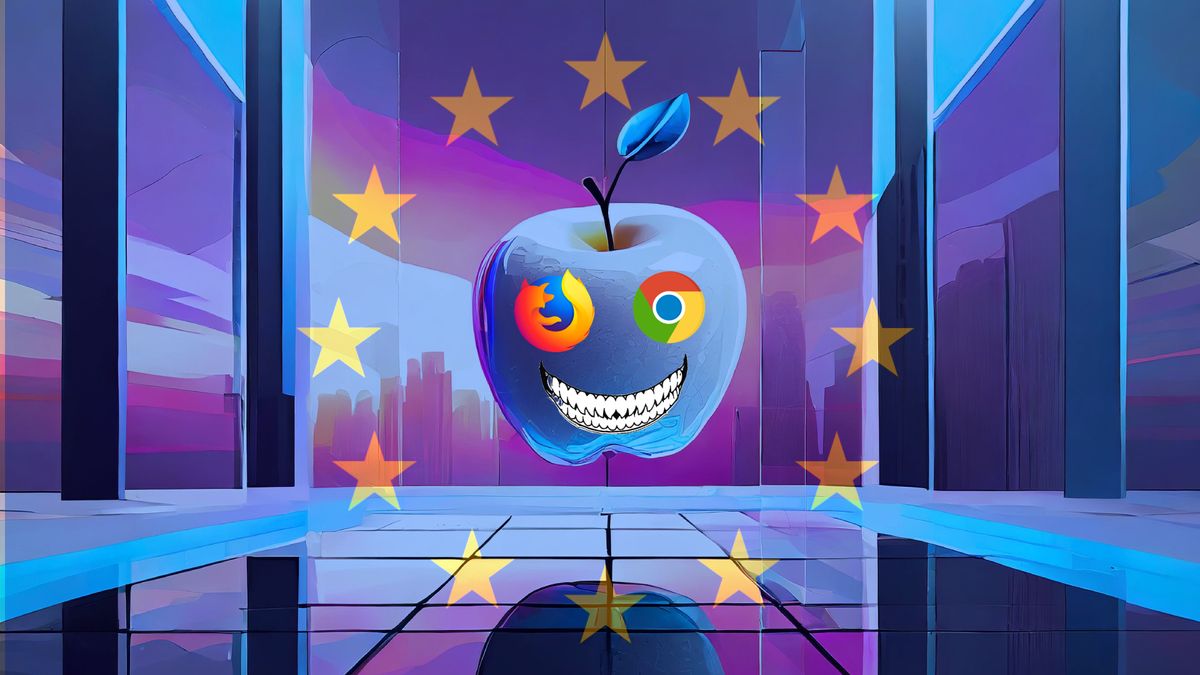
The guarded citadel partitions of Apple’s iOS ecosystem prolong to internet browsers, elevating issues about restricted person selection and stagnant innovation. As reported in Ars Technica, whilst “choice” browsers like Chrome and Firefox exist, they are necessarily Safari skins sure by way of Apple’s WebKit engine. As Google’s Chrome VP Parisa Tabriz aptly summarized, this displays “an excessively restrictive technique” missing significant alternatives for builders.
The approaching EU rules (DMA AKA Virtual Markets Act) requiring browser selection might make stronger the placement. Those rules will power Apple to permit customers to make a choice from quite a lot of instrument browsers. This may result in extra innovation and pageant within the iOS browser marketplace.
Past Safari Skins: The Quest for True Selection
Downloading Chrome or Firefox on iOS would possibly be offering a unique UI and have palette, however beneath the hood, it is all Apple’s WebKit. Each browser inherits its insects and restricted characteristic make stronger, prompting some builders to dub Safari “the brand new Web Explorer.” Whilst Safari has stepped forward lately, options like push notifications arrived seven years at the back of Google and Mozilla, highlighting the innovation hole.
The Chrome Conundrum: Extra Festival or Monoculture?
Extra pageant sounds just right, however the truth would possibly paint a unique image. Within the iOS browser house, Safari and by way of proxy WebKit’s major contender most probably comes from Chrome, wielding the numerous assets and achieve of Google. Whilst Chrome would possibly be offering higher characteristic make stronger, it comes with a trade-off: a integrated monitoring device elevating privateness issues. Safari, alternatively, boasts a more potent privateness tale.
There is additionally the truth that the Chromium basis Google Chrome is constructed on is a monoculture just like Safari’s WebKit in and of itself, with many different browsers like Microsoft Edge, Vivaldi, Opera, and Courageous all applying Google’s codebase.
With this in thoughts, the EU’s regulations and rules may doubtlessly do little greater than take the reins out of Apple’s palms and go them instantly over to Google — swapping one gatekeeper for any other.
The over-abundance of Chromium browsers on desktop and Android gadgets already provides Google a near-vice-like grip over internet requirements. The EU’s Virtual Markets Act may push that degree of affect onto Apple gadgets too, the place Apple’s WebKit insistence is without doubt one of the ultimate main strains of protection towards Google achieving a monopoly-esque affect over the way forward for the web as we are aware of it.
Ultimate Ideas
In the long run, the have an effect on of the EU rules at the iOS browser marketplace continues to be noticed. They are going to result in extra selection and innovation, however it’s also imaginable that they are going to result in Chrome dominance, which is doubtlessly no higher than the present iOS WebKit-only panorama.

Allow 48h for review and removal.